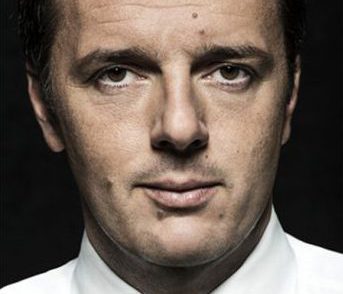From May 6 to 9, European leaders gathered in Florence, Italy, to discuss what the future holds for the European community at the fifth annual State of the Union conference.
During the anniversary of the Schuman Declaration, commemorated every year as “Europe Day” celebrating the 1950 declaration by then-French foreign minister Robert Schuman who was a forerunner of the modern European Union (EU), European academics alongside current and former policy makers came together to examine and debate topics such as surveillance and security, migration, energy policy and global justice.
Now in its fifth year, the conference is organized and hosted by the European University Institute (EUI). In the hills outside Florence in nearby Fiesole, the EUI stays true to its mission statement set out when it first opened its doors in 1976, to “foster the advancement of learning in fields which are of particular interest for the development of Europe.” With conference events shifting between the EUI and Palazzo Vecchio, Florence—the proverbial birthplace of the Renaissance—was the perfect location to discuss the potential rebirth of the EU.
On the first day of the conference, three leaders in European policy released a document titled “Towards a ‘New Schuman Declaration.’” Written by Giuliano Amato, former prime minister of Italy and now a judge of the Italian constitutional court; Élisabeth Guigou, current president of the Foreign Affairs Committee of the French National Assembly; and Vaira Vīķe-Freiberga, president of the World Leadership Alliance Club of Madrid and member of the European Council on Foreign Relations; and J.H.H. Weiler, president of the EUI, the document reflects on the accomplishments of the EU since its inception and looks at potential areas of progression for the future. It praises putting an end to European war, the creation of an area of free movement for people, capital, goods and services, and the promotion of rule of law and democracy. But it also claims “the circumstance of Europe has changed.” The paper delves into a looming sense of insecurity, economically and in terms of external defense and internal security, a perceived feeling of threat to national cultural and political identity, and growing doubts about the Union itself and whether its institutions are able to reflect and respond to the wishes of EU citizens.
Among the solutions proposed by the European leaders were setting up a European fund to aid member states that cannot support their own social and sanitary protection measures, the creation of an Common Urban Policy that would see renewal projects contributing to growth and employment, and a pooling of national intelligence and investigation capacities to give EU citizens an enhanced sense of security. Giuliano Amato put forward the idea that there is not one solution to the problems of the EU succinctly by stating, “There is no ‘coal and steel’ that I can sell to the citizens of Europe,” referencing the origins of the EU in the post-World War II European Coal and Steel Community.
One of the main themes of the conference was surveillance and security. Two years after the shocking revelations by former CIA and NSA contractor Edward Snowden, a report titled “SURVEILLE, Surveillance: Ethical issues, legal limitation, and efficiency” seeking to assess the ethics, law, and efficiency of surveillance, particularly in combatting terrorism and other crime, was released and discussed at the State of the Union in several different panels. While discussing the results of the report, Simon Chesterman, professor at the National University of Singapore, brought up that Forbes predicted that the surveillance industry would increase by ten times in the next decade. He also maintained that, despite this anticipated increase, it “should not be thought of as privacy versus security but privacy and security.” David Anderson, a UK reviewer of terrorism legislation, said in light of recent scandals concerning the abuse of surveillance measures, “No surveillance is acceptable without reasonable safeguards.”
Overall, the leading authorities on the current and future state of the EU seemed cautiously optimistic. During a discussion panel with J.H.H. Weiler, Frans Timmermans, first vice president of the European Commission, discussed the growing feeling of Euroscepticism. Moving away from discussing the issue in terms of whether the idea is correct or incorrect, he claimed that Eurosceptics have many valid points and stated, “It is important not to dismiss Eurosceptics as completely wrong, but more to address their complaints.” Prime Minister of Italy Matteo Renzi, on the modern position of the EU, asserted that, “Europe is a talented pupil who is not working hard enough” and summed up many opinions articulated over the course of the conference by saying that the “EU was an extraordinary dream for our predecessors, drawing from our diverse histories, and we need to have the courage to continue to dream.”







